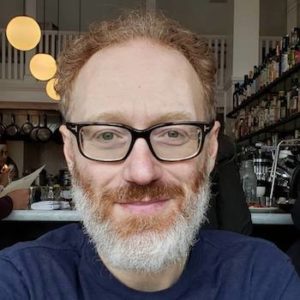When I was a kid it was easy to smell a snow storm coming, or to be able to feel how the wind shifted and the light in the sky meant that you’d better take cover as a thunderstorm was maybe, if you were lucky, 20 minutes away. Us humans have the ability to sense deeply. And if you don’t’ think that’s true, reflect on the last time you knew there was trouble in your relationship, but when you probed your partner said, “nothing.”
Us humans have extraordinary abilities to sense deeply. Actually, these abilities are not extraordinary, they are just not in this day and time ordinarily used. As conventional medicine relies on the “evidence based” objective tests, and we in the Chinese medicine community have our own questions, theories and processes that prescribe how we use our sensing to determine what is going on for our patients.
In this conversation we go deeply into sensing. Into trusting our first impressions, and how listening attentively with our touch and presence can lead us to places where our patients need attention, even if they are not themselves aware of it. And even if it at first makes no sense to us either.
Listen into this conversation that explores the crossroads of Chinese medicine and old-school osteopathy.
In This Conversation We Discuss:
- From Anthropology to medicine
- The feelings in the body of taichi opened the door to looking at Chinese medicine
- First listening to the body, then listening to the patient
- What is the body trying to protect?
- Learning to trust your sense of touch
- Similarities between Chinese medicine and Osteopathy
- Looking for the Health
- Looking for potent points of therapeutic leverage
- Grokking a patient in under a minute
- There’s no better way to get experience than getting experience
- French acupuncture and the divergent channels
- Using the eight extraordinary meridians
- Being open to mistakes/gaining experience
- Matching a patient where they are at
- Two thirds of the body is in front of the spine
- Less about being right and more about being inquisitive
Listen to your patient. They tell you a lot about themselves, but what they say consciously is often not the most important thing they tell you.
 Josh Margolis, L.Ac
Josh Margolis, L.Ac
My interest in natural medicine began as a child. My father, a math professor, pursued posts around the world and the family landed in Paris. It was here that I had a profound firsthand experience with natural healing when my French doctor recommended discontinuing dairy as treatment for my recurrent ear infections. When I was nineteen, healing from a near-fatal bike accident in Santa Fe required rehabilitation – including acupuncture. Combined with my concurrent exposure to osteopathy while enrolled in bodywork school, cemented my passion for understanding and working with the human body.
I have practiced manual medicine and bodywork since 1995, and acupuncture and Chinese herbal medicine since 2001. From 2005 to 2011, I was on faculty at two Bay Area TCM colleges where I taught anatomy, orthopedic acupuncture, advanced channel theory, and pain management. My current interests are in cranial and visceral manipulation and the dynamic interplay between the nervous system, internal organs and the musculoskeletal system.
In my years of practice in the Bay Area, I have developed a diverse and loyal following, comprised of professional musicians, dancers, yogis, restauranteurs, athletes, children, the elderly, and those with severe chronic illnesses. I’ve practiced at Farmacopia in Santa Rosa, CA since 2011.
Links and Resources
To acquaint yourself with osteopathic techniques Josh recommends
the Atlas of Osteopathic Techniques and
Ligamentous Articular Strain: Osteopathic Manipulative Techniques for the Body: Revised Edition by Conrad A Speece, William Thomas Crow, Steven L. Simmons
Wonderful, (relatively) easy to follow book with wonderful insights and easy to apply techniques
Join the discussion!
Leave a comment on the Qiological Forum page.
